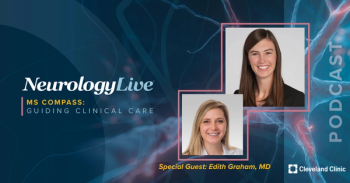
Parkinson & Movement Disorder (PMD) Alliance Publishes New Paper on Impact of Isolation During COVID-19 Pandemic on Patient Burden of Parkinson Disease

FOR IMMEDIATE RELEASE
DATE: March 29, 2022
CONTACT: Debbie Rich, PMD Alliance Director, Communications 800-256-0966 or
PMD Alliance’s paper, “Impact of Isolation During the COVID-19 Pandemic on the Patient Burden of Parkinson’s Disease: A PMD Alliance Survey,” was published in the March 2022 issue of Dovepress.
The paper, with lead authorship from Neal Hermanowicz, MD, and Maria Cristina Ospina, MD, set out to answer the question: how does isolation impact the wellbeing of people living with a movement disorder? Between January 6, 2021 and February 27, 2021, PMD Alliance gathered data through a survey of over 700 people with Parkinson disease and their care partners.
The compiled data told a story of the power of connection and the impact of loneliness. It showed that a decline in social support outside the household during the COVID-19 social restrictions significantly and negatively impacted mood, including increased sadness, depression, and anxiety in people with Parkinson’s. COVID-19-induced social isolation also exacerbated non-motor symptoms, including a decline in memory, problem solving, communication, new or worsening confusion, and new or worsening delusions.
The results shed light on the need for healthcare providers to focus strongly on encouraging people with Parkinson’s and their loved ones to build and maintain social connections, and the real toll isolation takes on health and wellbeing.
“When PMD Alliance gathers data from the community, we do it with the entire Movement Disorder Care & Support Ecosystem© in mind,” says Sarah Jones, PMD Alliance Co-Founder. “We engage doctors, advanced practice providers, people with a movement disorder and their care partners...and all research we conduct is designed to tell a story that will make for better treatment, better care, and better outcomes. We want to truly change the experience of people living with a movement disorder.”
PMD Alliance works alongside our medical network, using community feedback to tell a meaningful story of their experience and, thereby, improve their quality of life and care. “The impact of loneliness and isolation is killing people. They’re dying from broken hearts and they’re dying from a failure to thrive,” Jones explained about the survey results. “This speaks to real, lived experience, not just numbers.”
Lead author, Neal Hermanowicz, MD, highlighted the undeniable impact of isolation on all of us, especially those living with a movement disorder: “The results of our study emphasize that our wellbeing is served by the social connections that are important to us, that strengthen us, perhaps particularly for those who are facing each day with the additional weight that the diagnosis of Parkinson disease brings. Our study shows clearly that medications and surgeries are only a part of the plan. We need our community to live at our best.”
Author Maria Cristina Ospina, MD, underscored these consequences, expressing the power of high-quality medical care in conjunction with community support: “Parkinson disease is the poster child for the mind-body connection and we can really see that in this study. Not only do patients need their medical therapy maximized, but social interaction and support is critical to keeping patients healthy.”
For more information and to read the full paper, visit
Abstract Authors: Hermanowicz N1, Ospina MC2, Torres-Yaghi Y3, Gould S4, Papesh K5, Rivera J6, Miller S6, Jones S6, Musick K7, May D7
Affiliations:
1 Christus St. Vincent Neurology Specialists, Santa Fe, NM, USA
2 Regional Parkinson Center, Phoenix, AZ, USA
3 MedStar Georgetown University Hospital, Washington DC, USA
4 Scripps Clinic Movement Disorders Center in La Jolla, CA, USA
5 Cleveland Clinic Lou Ruvo Center for Brain Health in Las Vegas, NV, USA
6 Parkinson and Movement Disorder Alliance (PMD Alliance), Tucson, AZ, USA;
7 ACADIA Pharmaceuticals Inc.
About Parkinson & Movement Disorder Alliance (PMD Alliance)
Parkinson & Movement Disorder Alliance is an independent, national 501(c)3 nonprofit dedicated to providing opportunities for people to learn, live life more fully, and spark meaningful connections around them. PMD Alliance serves people across the United States and is not affiliated with any medical practice or institution. PMD Alliance is committed to keeping our community safe and healthy. Visit
Newsletter
Keep your finger on the pulse of neurology—subscribe to NeurologyLive for expert interviews, new data, and breakthrough treatment updates.










